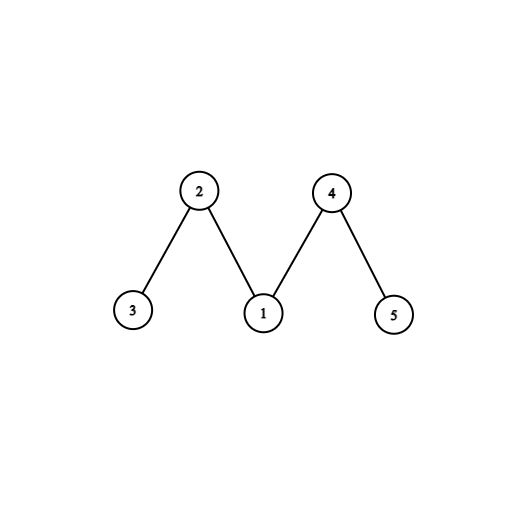CF1592C.Bakry and Partitioning
普及/提高-
通过率:0%
AC君温馨提醒
该题目为【codeforces】题库的题目,您提交的代码将被提交至codeforces进行远程评测,并由ACGO抓取测评结果后进行展示。由于远程测评的测评机由其他平台提供,我们无法保证该服务的稳定性,若提交后无反应,请等待一段时间后再进行重试。
题目描述
Bakry faced a problem, but since he's lazy to solve it, he asks for your help.
You are given a tree of n nodes, the i -th node has value ai assigned to it for each i from 1 to n . As a reminder, a tree on n nodes is a connected graph with n−1 edges.
You want to delete at least 1 , but at most k−1 edges from the tree, so that the following condition would hold:
- For every connected component calculate the bitwise XOR of the values of the nodes in it. Then, these values have to be the same for all connected components.
Is it possible to achieve this condition?
输入格式
Each test contains multiple test cases. The first line contains the number of test cases t (1≤t≤5⋅104) . Description of the test cases follows.
The first line of each test case contains two integers n and k (2≤k≤n≤105) .
The second line of each test case contains n integers a1,a2,...,an (1≤ai≤109) .
The i -th of the next n−1 lines contains two integers ui and vi ( 1≤ui,vi≤n , ui=vi ), which means that there's an edge between nodes ui and vi .
It is guaranteed that the given graph is a tree.
It is guaranteed that the sum of n over all test cases doesn't exceed 2⋅105 .
输出格式
For each test case, you should output a single string. If you can delete the edges according to the conditions written above, output "YES" (without quotes). Otherwise, output "NO" (without quotes).
You can print each letter of "YES" and "NO" in any case (upper or lower).
输入输出样例
输入#1
5 2 2 1 3 1 2 5 5 3 3 3 3 3 1 2 2 3 1 4 4 5 5 2 1 7 2 3 5 1 2 2 3 1 4 4 5 5 3 1 6 4 1 2 1 2 2 3 1 4 4 5 3 3 1 7 4 1 2 2 3
输出#1
NO YES NO YES NO
说明/提示
It can be shown that the objection is not achievable for first, third, and fifth test cases.
In the second test case, you can just remove all the edges. There will be 5 connected components, each containing only one node with value 3 , so the bitwise XORs will be 3 for all of them.
In the fourth test case, this is the tree:  .
.
You can remove an edge (4,5)
The bitwise XOR of the first component will be, a1⊕a2⊕a3⊕a4=1⊕6⊕4⊕1=2 (where ⊕ denotes the bitwise XOR).
The bitwise XOR of the second component will be, a5=2 .